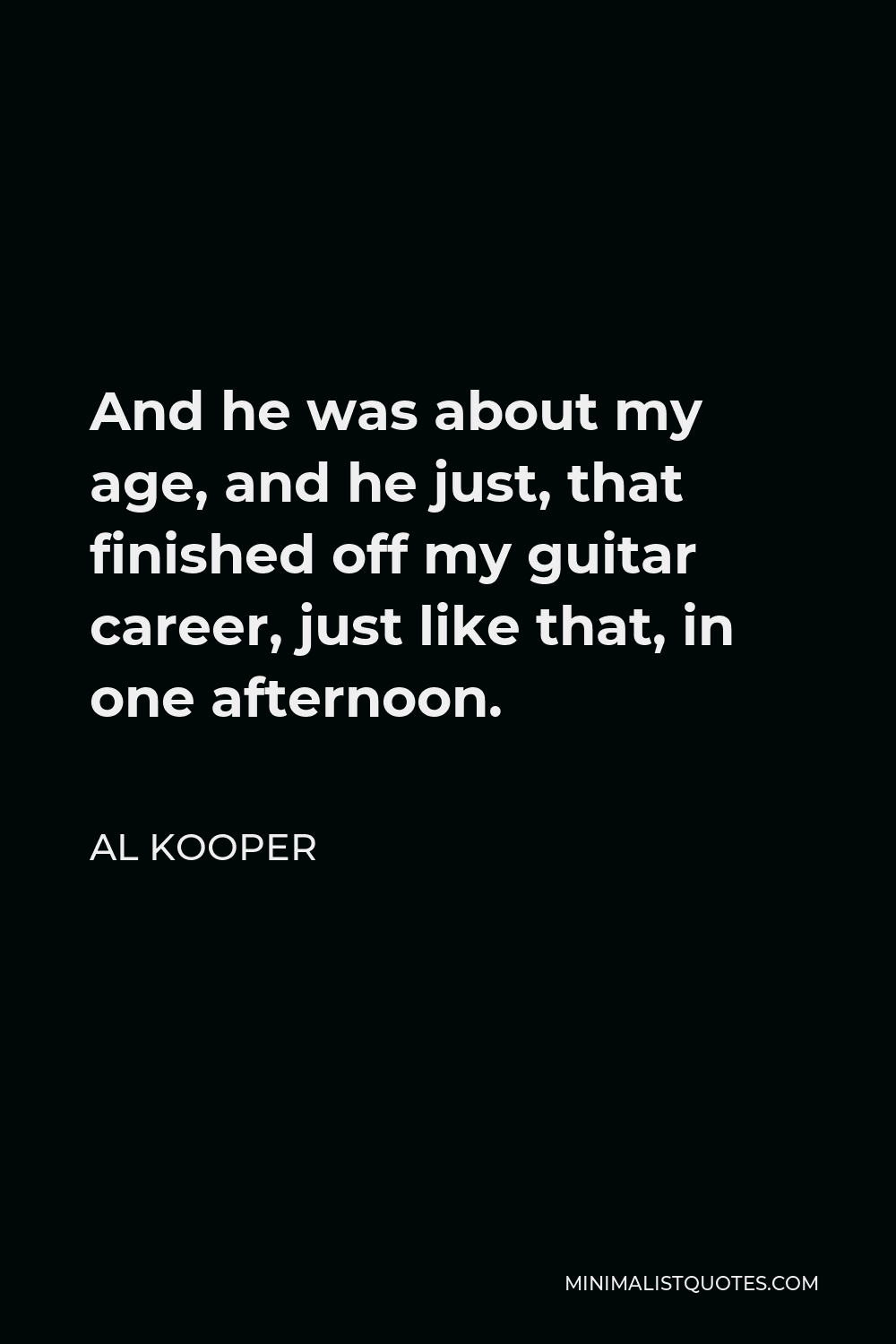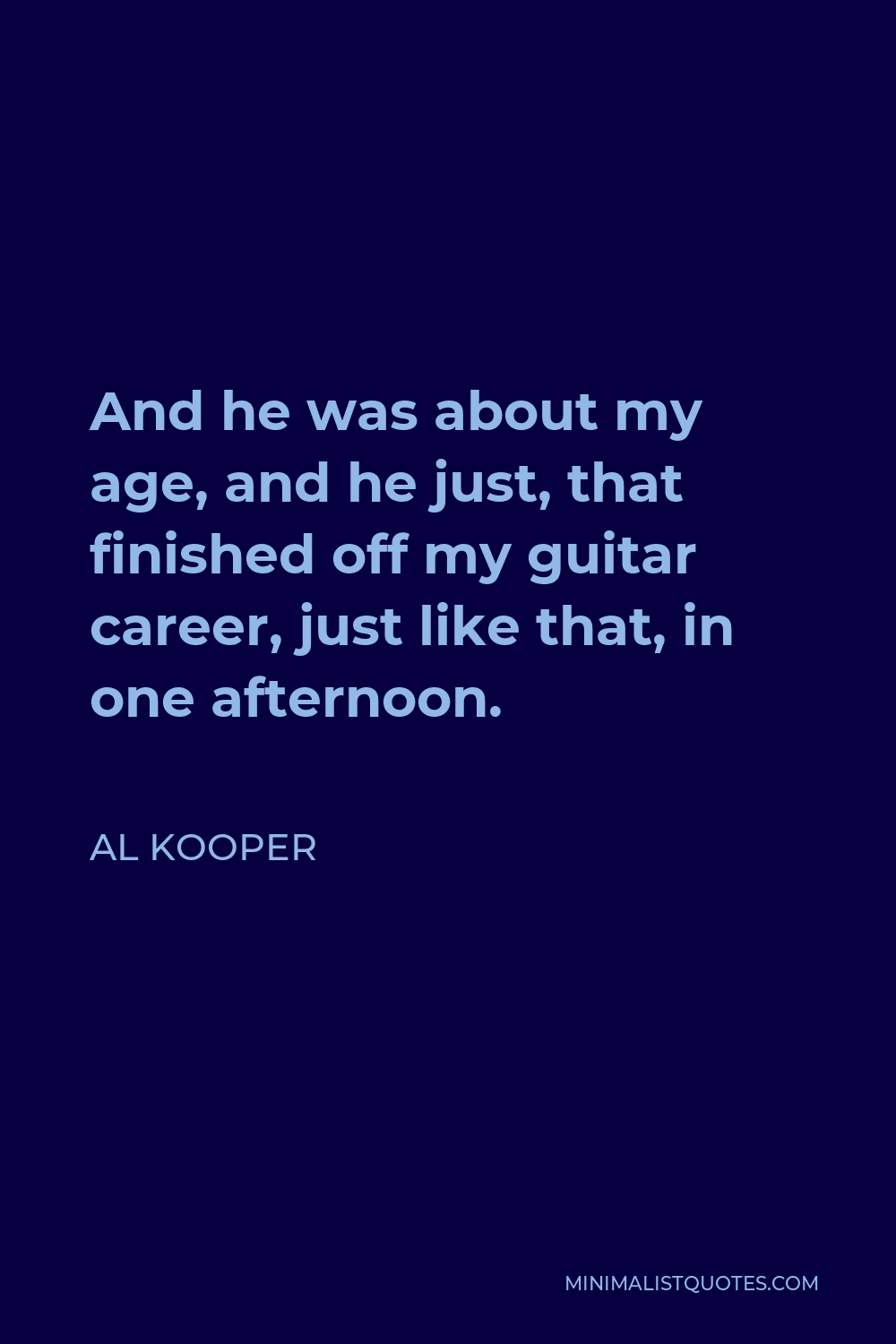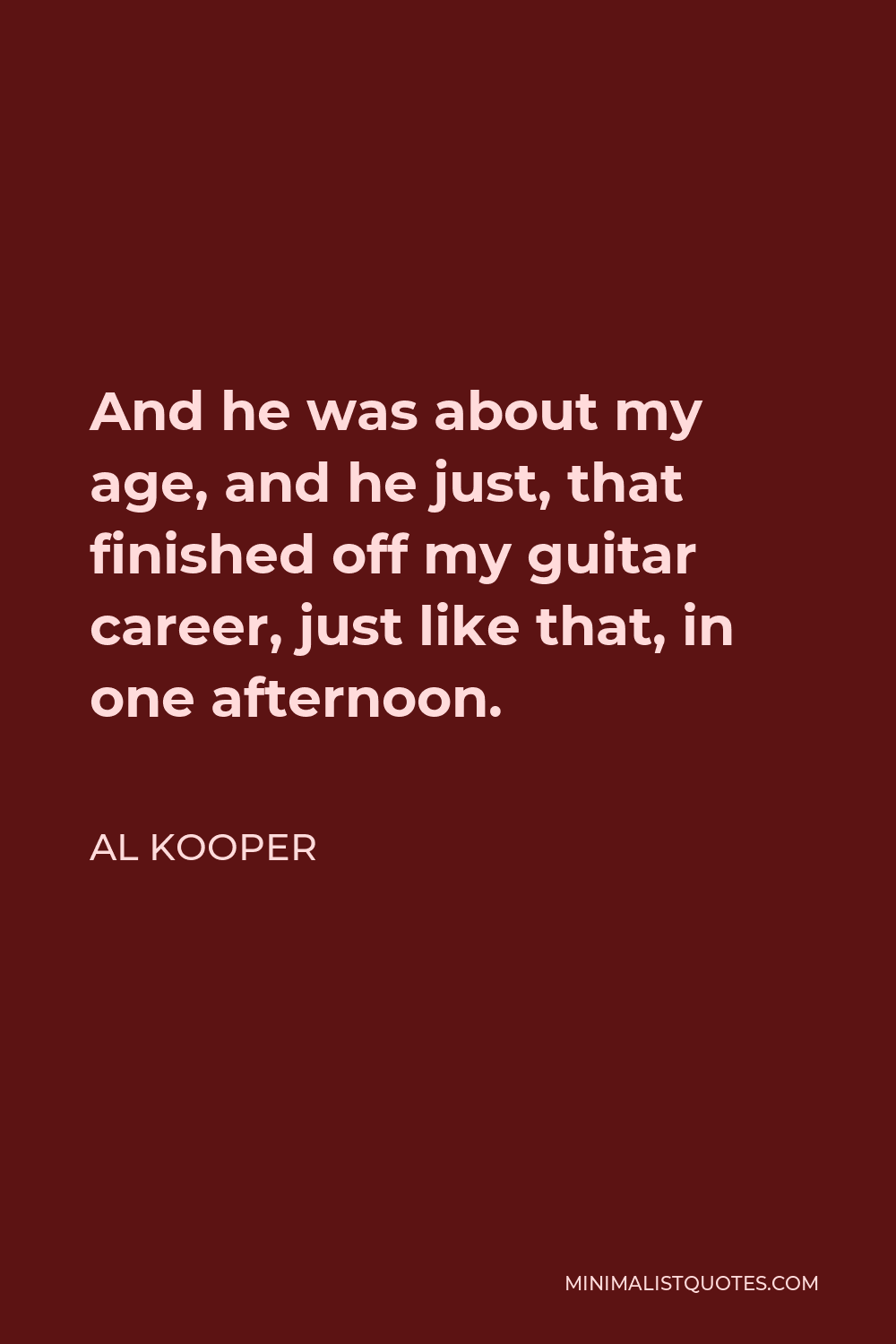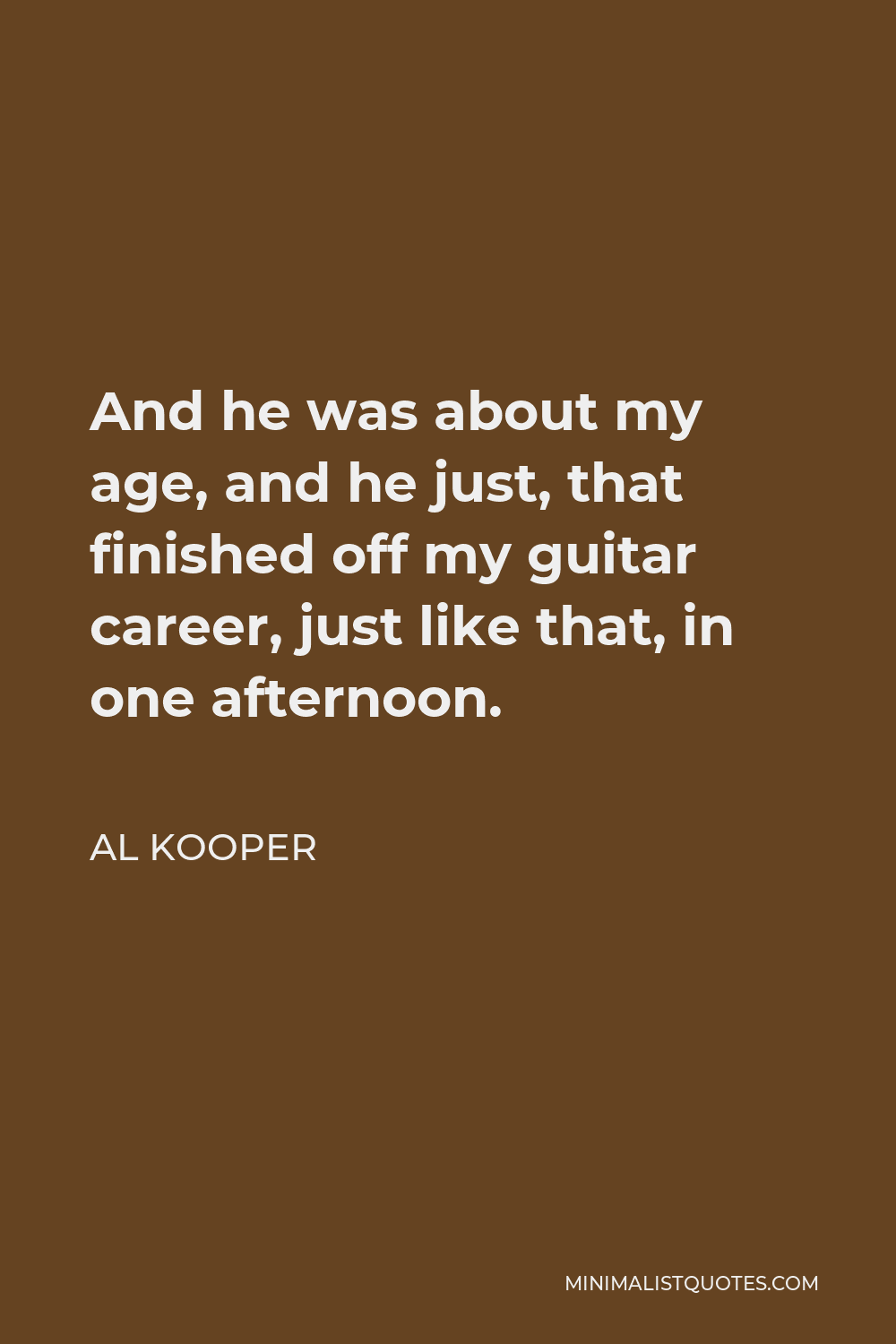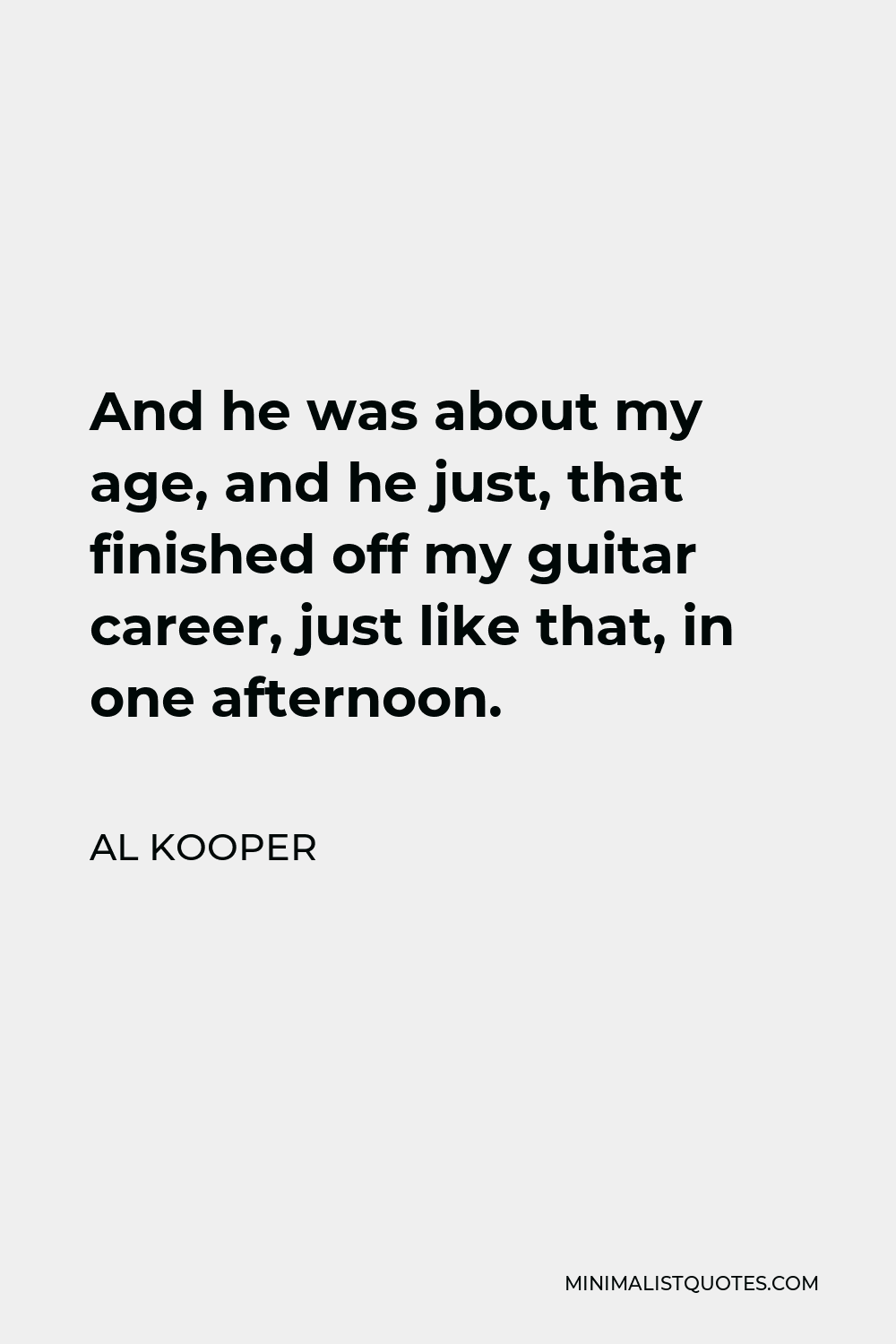If you’d done a good job you’d just step back and let all these different chemistries interact and let it go.
AL KOOPERAnd he was about my age, and he just, that finished off my guitar career, just like that, in one afternoon.
More Al Kooper Quotes
-





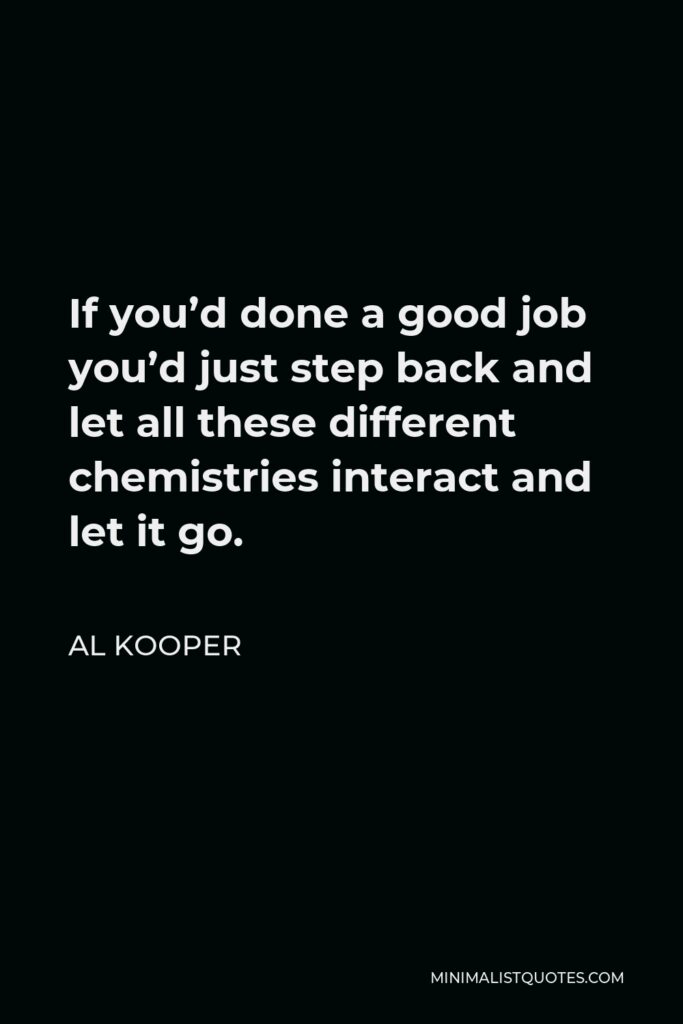

-





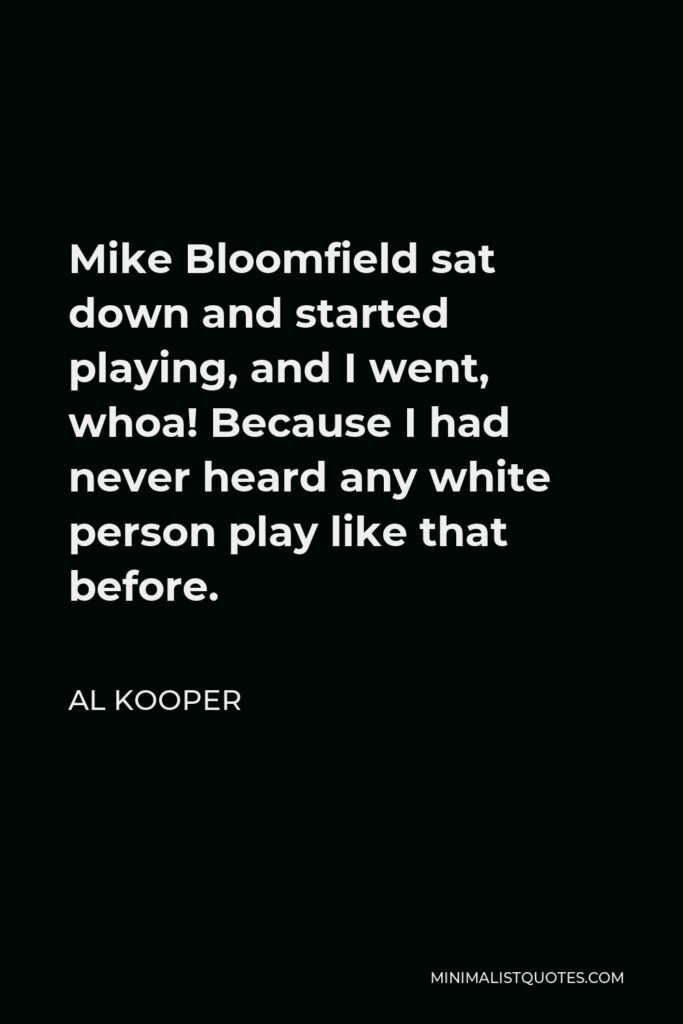

Mike Bloomfield sat down and started playing, and I went, whoa! Because I had never heard any white person play like that before.
AL KOOPER -





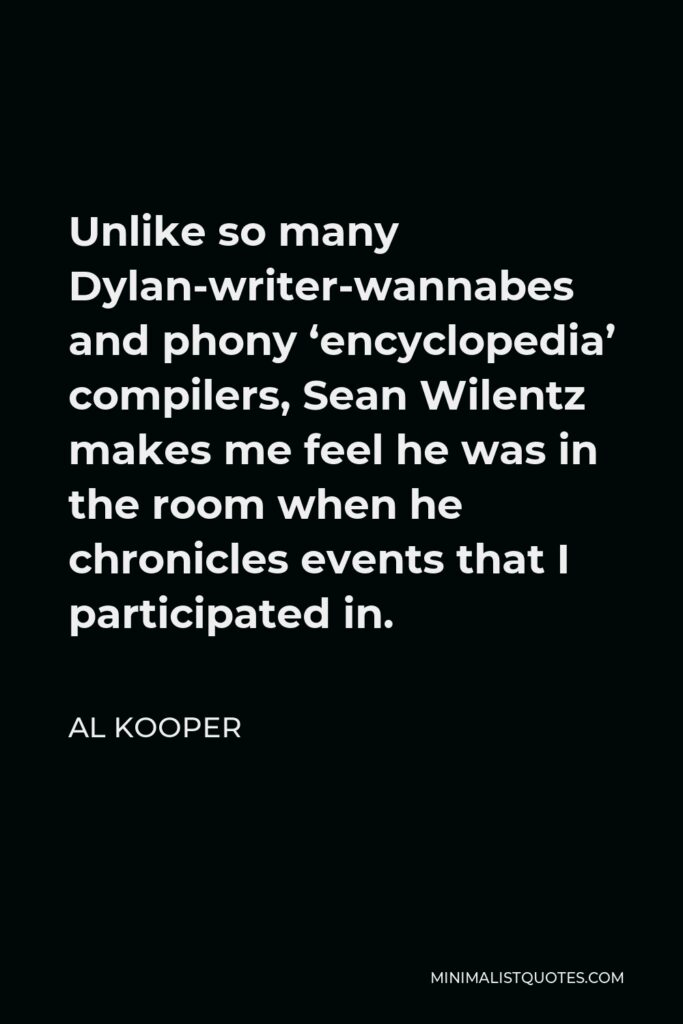

Unlike so many Dylan-writer-wannabes and phony ‘encyclopedia’ compilers, Sean Wilentz makes me feel he was in the room when he chronicles events that I participated in.
AL KOOPER -





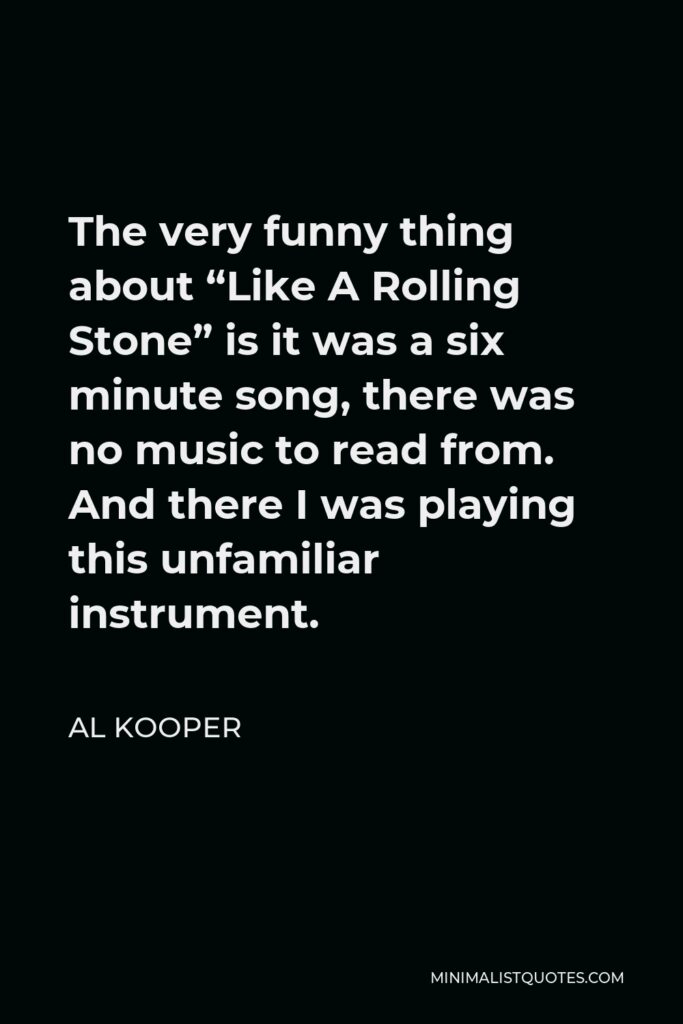

The very funny thing about “Like A Rolling Stone” is it was a six minute song, there was no music to read from. And there I was playing this unfamiliar instrument.
AL KOOPER -





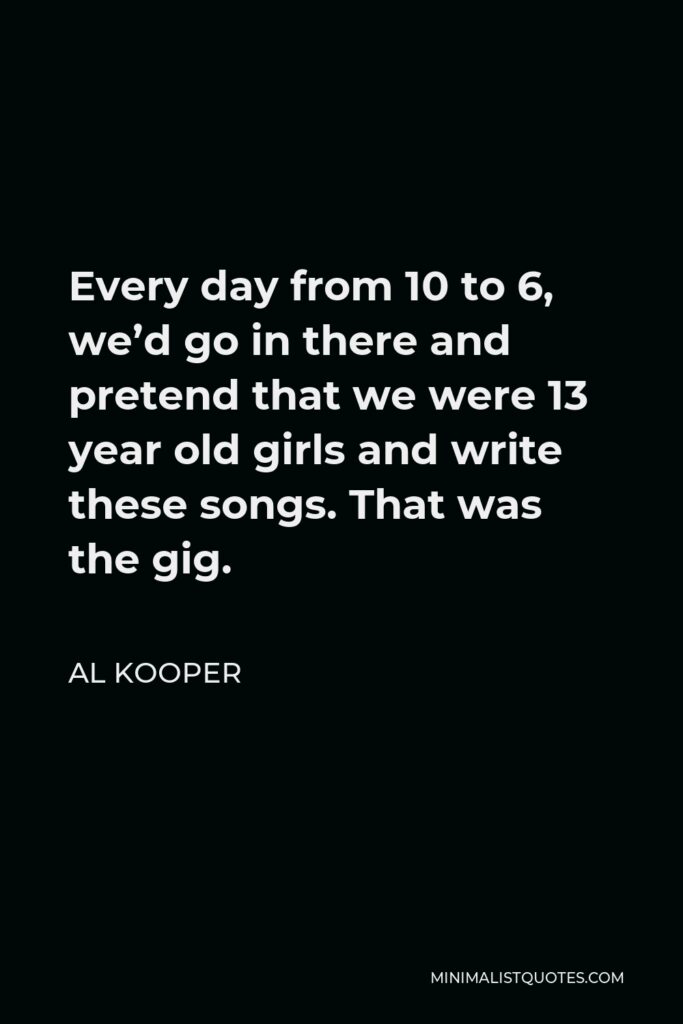

Every day from 10 to 6, we’d go in there and pretend that we were 13 year old girls and write these songs. That was the gig.
AL KOOPER -





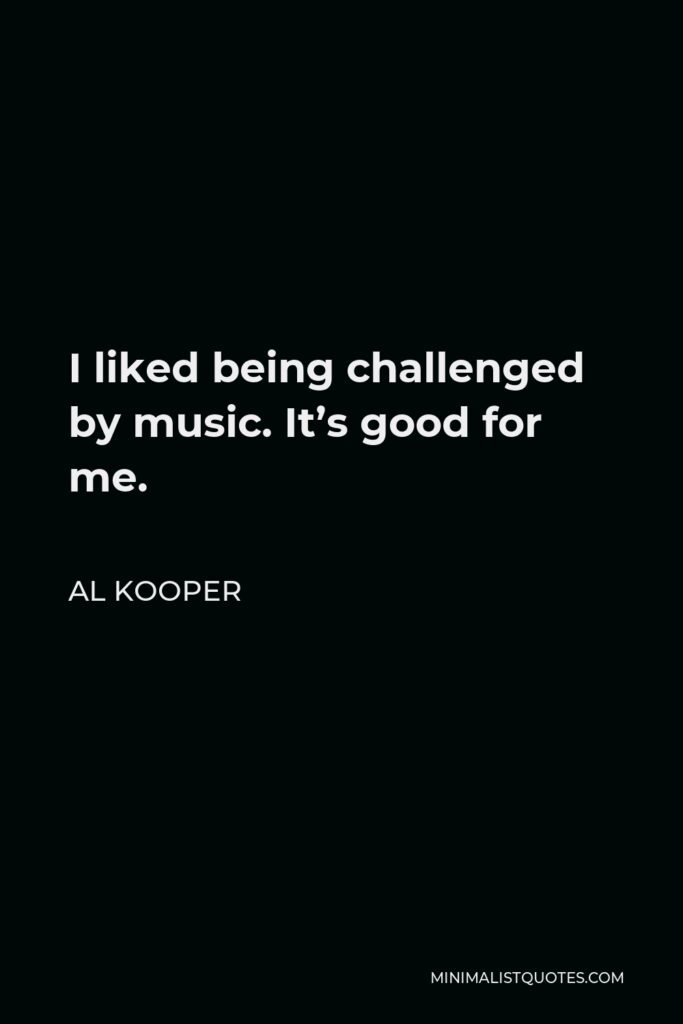

I liked being challenged by music. It’s good for me.
AL KOOPER -





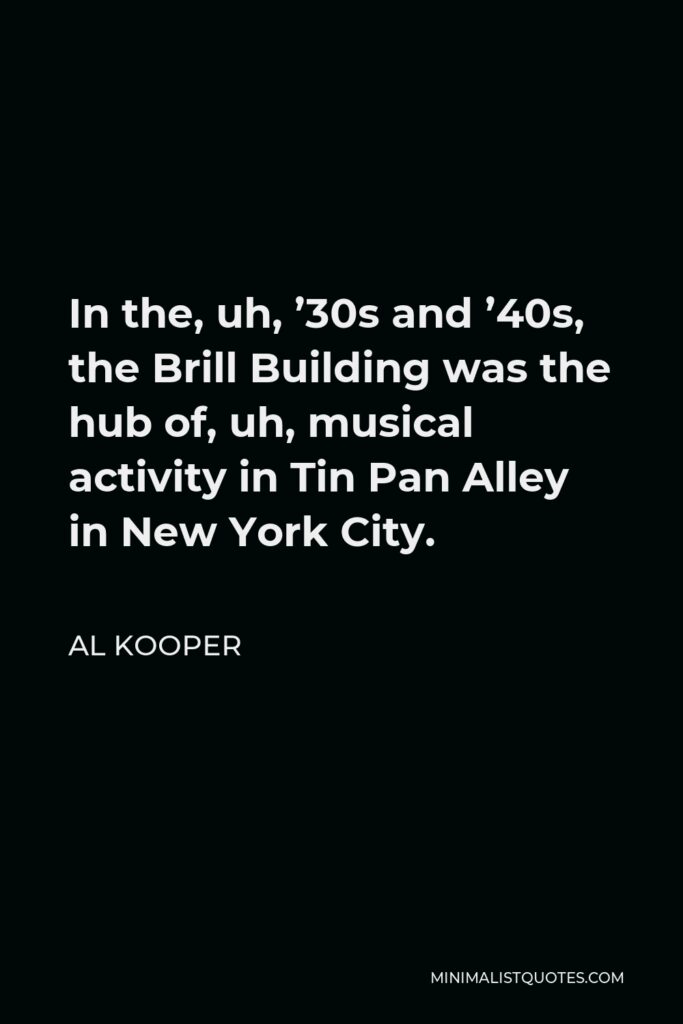

In the, uh, ’30s and ’40s, the Brill Building was the hub of, uh, musical activity in Tin Pan Alley in New York City.
AL KOOPER -





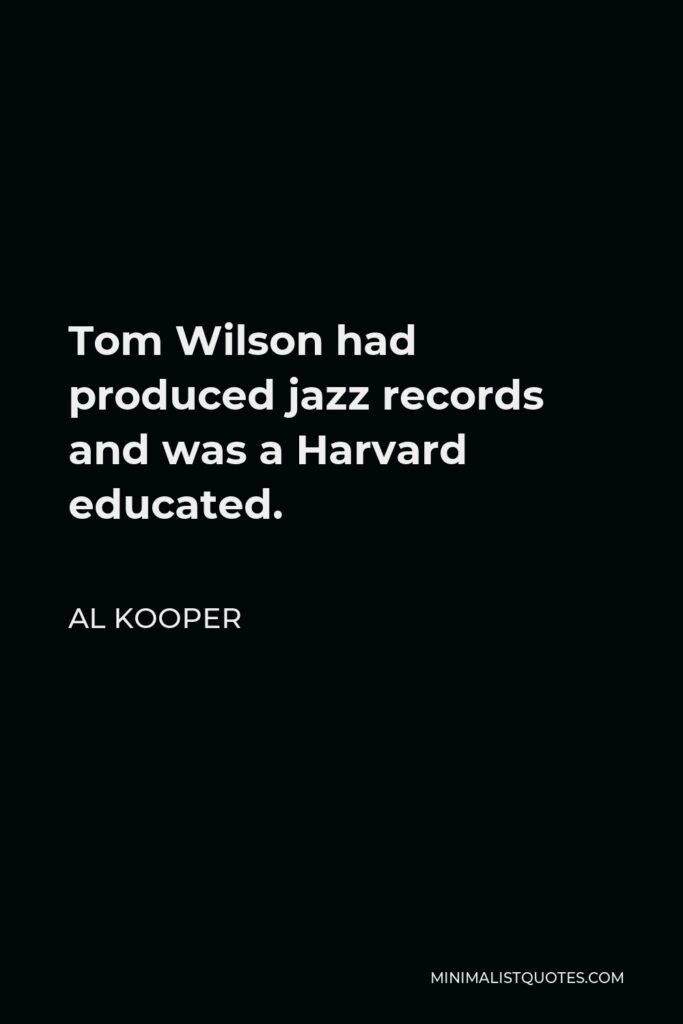

Tom Wilson had produced jazz records and was a Harvard educated.
AL KOOPER -





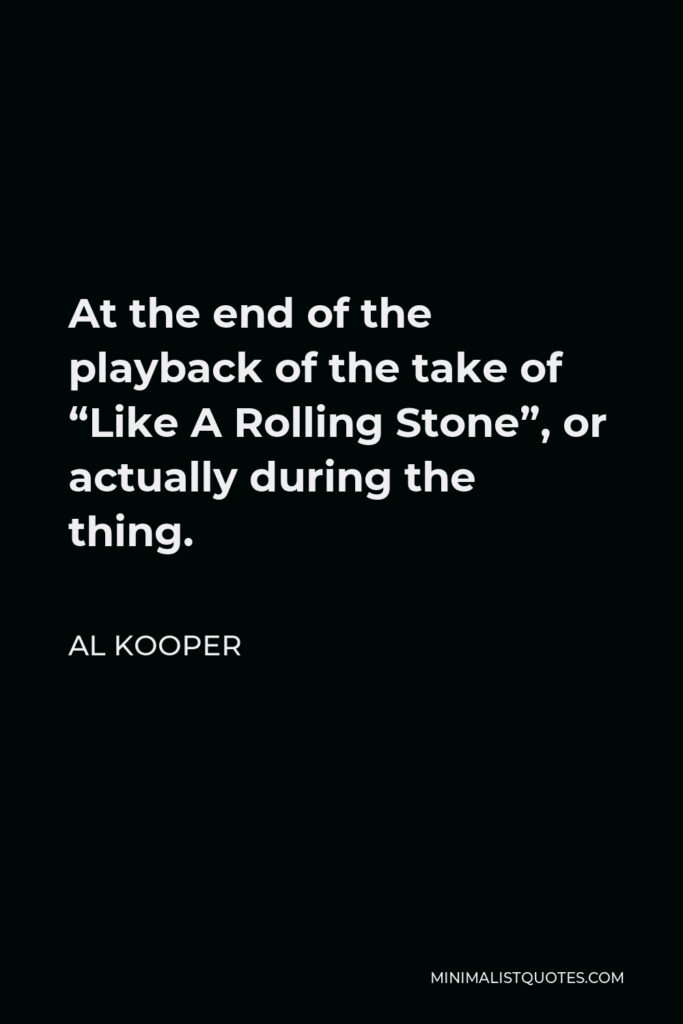

At the end of the playback of the take of “Like A Rolling Stone”, or actually during the thing.
AL KOOPER -





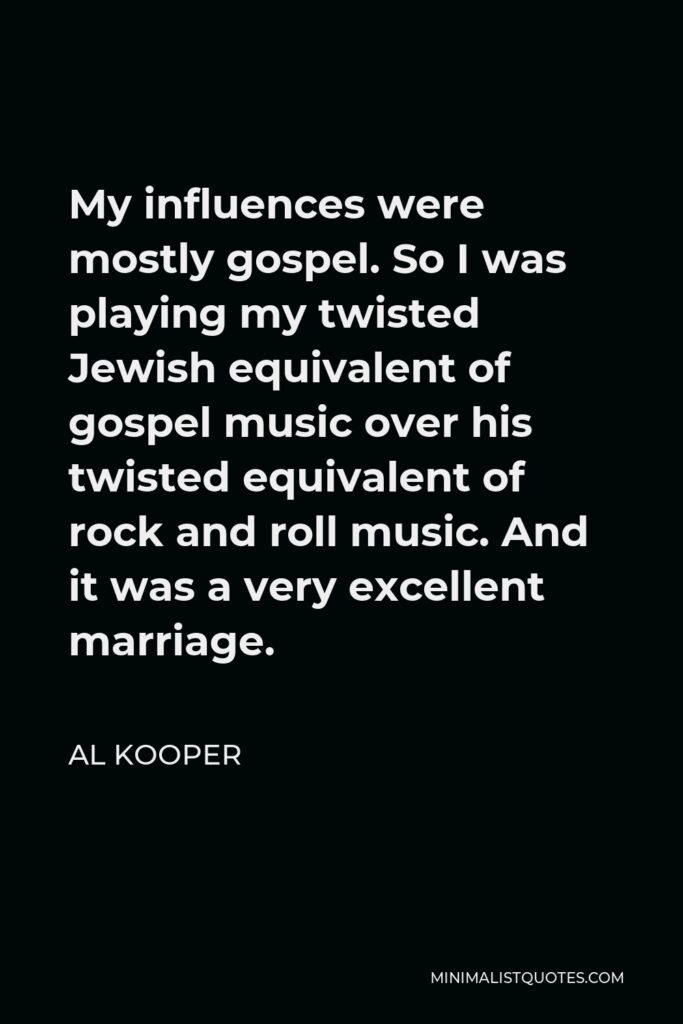

My influences were mostly gospel. So I was playing my twisted Jewish equivalent of gospel music over his twisted equivalent of rock and roll music. And it was a very excellent marriage.
AL KOOPER -





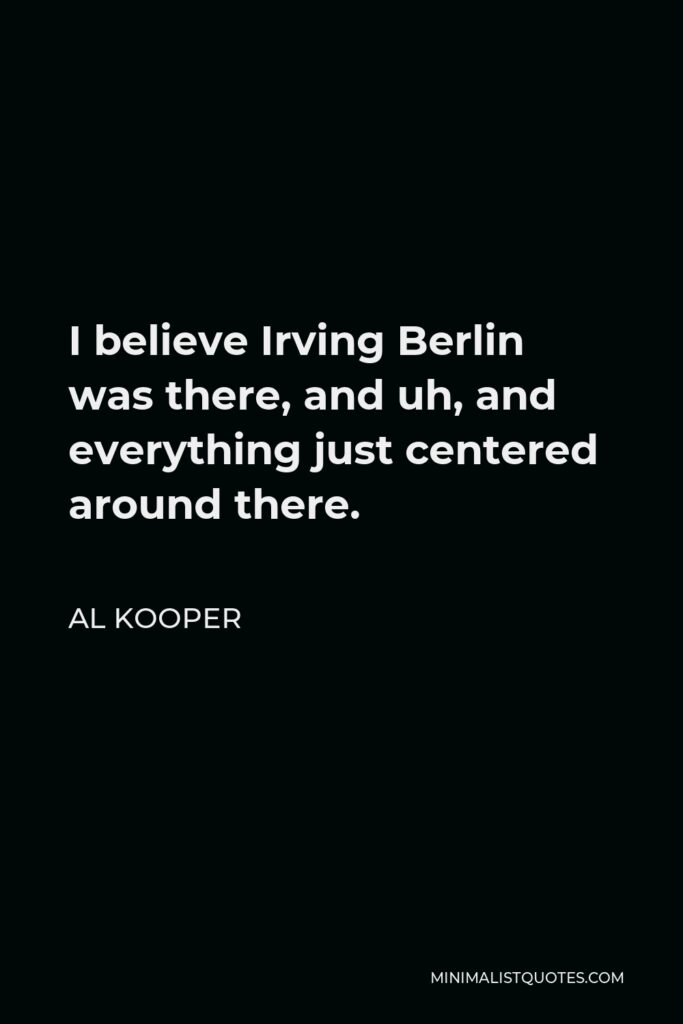

I believe Irving Berlin was there, and uh, and everything just centered around there.
AL KOOPER -





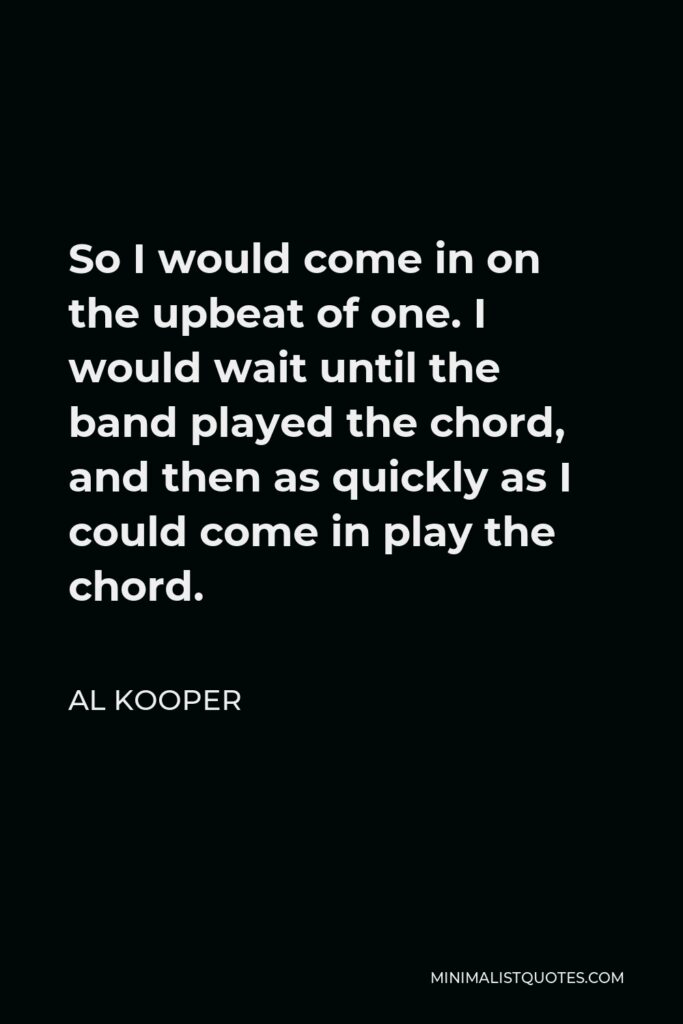

So I would come in on the upbeat of one. I would wait until the band played the chord, and then as quickly as I could come in play the chord.
AL KOOPER -





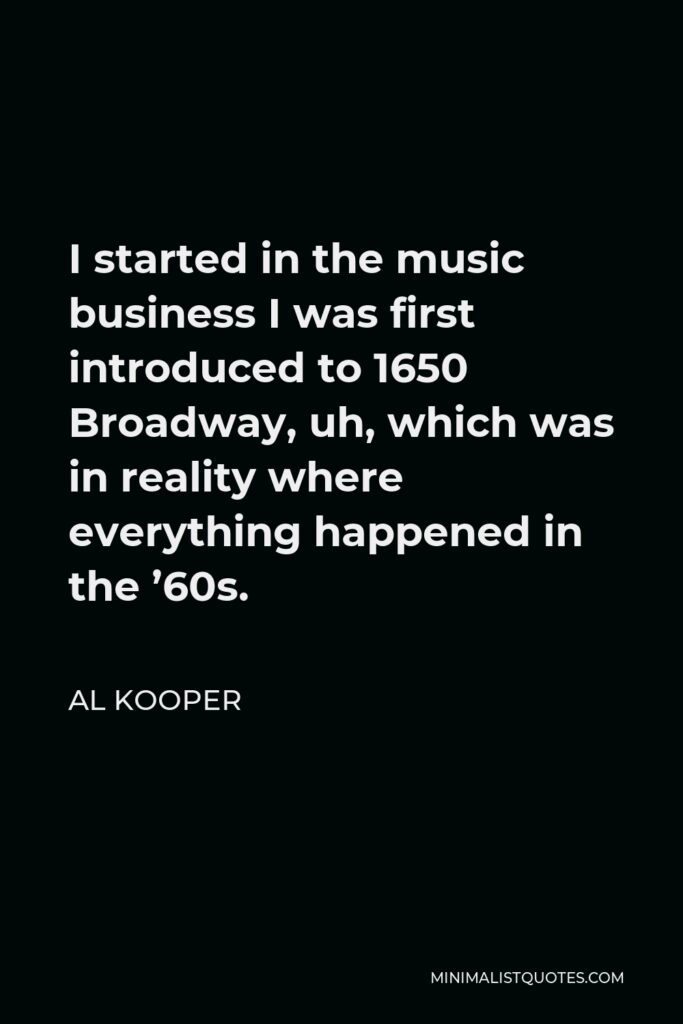

I started in the music business I was first introduced to 1650 Broadway, uh, which was in reality where everything happened in the ’60s.
AL KOOPER -







Bob Dylan said to the producer, turn up the organ. And Tom Wilson said, oh man, that guy’s not an organ player. And Dylan said.
AL KOOPER -





![Al Kooper Quote - The [Bob] Dylan sessions were very disorganized, to say the least. I mean, the “Like A Rolling Stone” session I was invited by the producer to watch.](https://minimalistquotes.com/wp-content/uploads/2022/07/the-bob-dylan-sessions-were-very-disorganized-to-s-683x1024.jpg)

The [Bob] Dylan sessions were very disorganized, to say the least. I mean, the “Like A Rolling Stone” session I was invited by the producer to watch.
AL KOOPER -





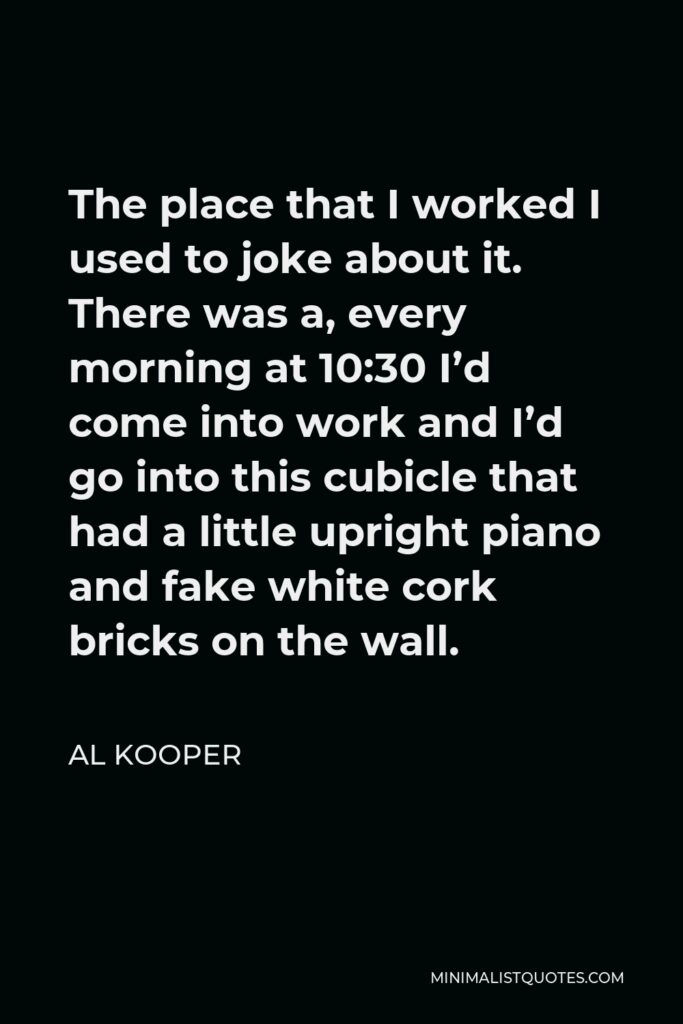

The place that I worked I used to joke about it. There was a, every morning at 10:30 I’d come into work and I’d go into this cubicle that had a little upright piano and fake white cork bricks on the wall.
AL KOOPER
